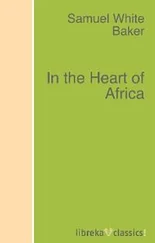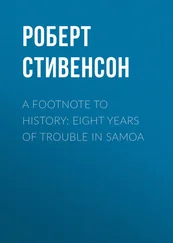Samuel White Baker - Eight Years' Wanderings in Ceylon
Здесь есть возможность читать онлайн «Samuel White Baker - Eight Years' Wanderings in Ceylon» — ознакомительный отрывок электронной книги совершенно бесплатно, а после прочтения отрывка купить полную версию. В некоторых случаях можно слушать аудио, скачать через торрент в формате fb2 и присутствует краткое содержание. Издательство: Иностранный паблик, Жанр: Путешествия и география, История, foreign_edu, foreign_antique, foreign_prose, на английском языке. Описание произведения, (предисловие) а так же отзывы посетителей доступны на портале библиотеки ЛибКат.
- Название:Eight Years' Wanderings in Ceylon
- Автор:
- Издательство:Иностранный паблик
- Жанр:
- Год:неизвестен
- ISBN:нет данных
- Рейтинг книги:4 / 5. Голосов: 1
-
Избранное:Добавить в избранное
- Отзывы:
-
Ваша оценка:
- 80
- 1
- 2
- 3
- 4
- 5
Eight Years' Wanderings in Ceylon: краткое содержание, описание и аннотация
Предлагаем к чтению аннотацию, описание, краткое содержание или предисловие (зависит от того, что написал сам автор книги «Eight Years' Wanderings in Ceylon»). Если вы не нашли необходимую информацию о книге — напишите в комментариях, мы постараемся отыскать её.
Eight Years' Wanderings in Ceylon — читать онлайн ознакомительный отрывок
Ниже представлен текст книги, разбитый по страницам. Система сохранения места последней прочитанной страницы, позволяет с удобством читать онлайн бесплатно книгу «Eight Years' Wanderings in Ceylon», без необходимости каждый раз заново искать на чём Вы остановились. Поставьте закладку, и сможете в любой момент перейти на страницу, на которой закончили чтение.
Интервал:
Закладка:
While the "bellows-blower" is thus getting up a blaze, another man attends upon the well, which he continues to feed alternately with fresh ore and a corresponding amount of charcoal, every now and then throwing in a handful of fine sand as a flux.
The return for a whole day's puffing and blowing will be about twenty pounds weight of badly-smelted iron. This is subsequently remelted, and is eventually worked up into hatchets, hoes, betel-crackers, etc., etc. being of a superior quality to the best Swedish iron.
If the native blacksmith were to value his time at only sixpence per diem from the day on which he first started for the mountains till the day that he returned from his iron-smelting expedition, he would find that his iron would have cost him rather a high price per hundredweight; and if he were to make the same calculation of the value of time, he would discover that by the time he had completed one axe he could have purchased ready made, for one-third the money, an English tool of superior manufacture. This, however, is not their style of calculation. Time has no value, according to their crude ideas; therefore, if they want an article, and can produce it without the actual outlay of cash, no matter how much time is expended, they will prefer that method of obtaining it.
Unfortunately, the expense of transit is so heavy from Newera Ellia to Colombo, that this valuable metal, like the fine timber of the forests, must remain useless.
CHAPTER IV
Poverty of Soil—Ceylon Sugar—Fatality of Climate—Supposed Fertility of Soil—Native Cultivation—Neglect of Rice Cultivation—Abandoned Reservoirs—Former Prosperity—Ruins of Cities—Pollanarua—The Great Dagoba—Architectural Relics—The Rock Temple—Destruction of Population—Neglected Capabilities—Suggestions for Increasing Population—Progress of Pestilence—Deserted Villages—Difficulties in the Cultivation of Rice—Division of Labor—Native Agriculture.
From the foregoing description, the reader will have inferred that Newera Ellia is a delightful place of residence, with a mean temperature of 60 Fahrenheit, abounding with beautiful views of mountain and plain and of boundless panoramas in the vicinity. He will also have discovered that, in addition to the healthiness of its climate, its natural resources are confined to its timber and mineral productions, as the soil is decidedly poor.
The appearance of the latter has deceived every one, especially the black soil of the patina, which my bailiff, on his first arrival declared to be excellent. Lord Torrington, who is well known as an agriculturist, was equally deceived. He was very confident in the opinion that "it only required draining to enable it to produce anything." The real fact is, that it is far inferior to the forest-land, and will not pay for the working.
Nevertheless, it is my decided opinion that the generality of the forest-land at Newera Ellia and the vicinity is superior to that in other parts of Ceylon.
There are necessarily rich lots every now end then in such a large extent as the surface of the low country; but these lots usually lie on the banks of rivers which have been subjected to inundations, and they are not fair samples of Ceylon soil. A river's bank or a valley's bottom must be tolerably good even in the poorest country.
The great proof of the general poverty of Ceylon is shown in the failure of every agricultural experiment in which a rich soil is required.
Cinnamon thrives; but why? It delights in a soil of quartz sand, in which nothing else would grow.
Cocoa-nut trees flourish for the same reason; sea air, a sandy soil and a dry subsoil are all that the cocoa-nut requires.
On the other hand, those tropical productions which require a strong soil invariably prove failures, and sugar, cotton, indigo, hemp and tobacco cannot possibly be cultivated with success.
Even on the alluvial soil upon the banks of rivers sugar does not pay the proprietor. The only sugar estate in the island that can keep its head above water is the Peredinia estate, within four miles of Kandy. This, again, lies upon the bank of the Mahawelli river, and it has also the advantage of a home market for its produce, as it supplies the interior of Ceylon at the rate of twenty-three shillings per cwt. upon the spot.
Any person who thoroughly understands the practical cultivation of the sugar-cane can tell the quality of sugar that will be produced by an examination of the soil. I am thoroughly convinced that no soil in Ceylon will produce a sample of fine, straw-colored, dry, bright, large-crystaled sugar. The finest sample ever produced of Ceylon sugar is a dull gray, and always moist, requiring a very large proportion of lime in the manufacture, without which it could neither be cleansed nor crystalized.
The sugar cane, to produce fine sugar, requires a rich, stiff, and very dry soil. In Ceylon, there is no such thing as a stiff soil existing. The alluvial soil upon the banks of rivers is adapted for the growth of cotton and tobacco, but not for the sugar-cane. In such light and moist alluvial soil the latter will grow to a great size, and will yield a large quantity of juice in which the saccharometer may stand well; but the degree of strength indicated will proceed from an immense proportion of mucilage, which will give much trouble in the cleansing during boiling; and the sugar produced must be wanting in dryness and fine color.
There are several rivers in Ceylon whose banks would produce good cotton and tobacco, especially those in the districts of Hambantotte and Batticaloa; such as the "Wallawé," the "Yallé river," the "Koombookanaar," etc.; but even here the good soil is very limited, lying on either bank for only a quarter of a mile in width. In addition to this, the unhealthiness of the climate is so great that I am convinced no European constitution could withstand it. Even the natives are decimated at certain seasons by the most virulent fevers and dysentery.
These diseases generally prevail to the greatest extent during the dry season. This district is particularly subject to severe droughts; months pass away without a drop of rain or a cloud upon the sky. Every pool and tank is dried up; the rivers forsake their banks, and a trifling stream trickles over the sandy bed. Thus all the rotten wood, dead leaves and putrid vegetation brought down by the torrent during the wet season are left upon the dried bed to infect the air with miasma.
This deadly climate would be an insurmountable obstacle to the success of estates. Even could managers be found to brave the danger, one season of sickness and death among the coolies would give the estate a name which would deprive it of all future supplies of labor.
Indigo is indigenous to Ceylon, but it is of an inferior quality, and an experiment made in its cultivation was a total failure.
In fact, nothing will permanently succeed in Ceylon soil without abundance of manure, with the exception of cinnamon and cocoa-nuts. Even the native gardens will not produce a tolerable sample of the common sweet potato without manure, a positive proof of the general poverty of the soil.
Nevertheless, Ceylon has had a character for fertility. Bennett, in his work entitled "Ceylon and its Capabilities," describes the island in the most florid terms, as "the most important and valuable of all the insular possessions of the imperial crown." Again he speaks of "its fertile soil, and indigenous vegetable productions," etc., etc. Again: "Ceylon, though comparatively but little known, is pre-eminent in natural resources." All this serves to mislead the public opinion. Agricultural experiments in a tropical country in a little garden highly manured may be very satisfactory and very amusing. Everything must necessarily come to perfection with great rapidity; but these experiments are no proof of what Ceylon will produce, and the popular idea of its fertility has been at length proved a delusion.
Читать дальшеИнтервал:
Закладка:
Похожие книги на «Eight Years' Wanderings in Ceylon»
Представляем Вашему вниманию похожие книги на «Eight Years' Wanderings in Ceylon» списком для выбора. Мы отобрали схожую по названию и смыслу литературу в надежде предоставить читателям больше вариантов отыскать новые, интересные, ещё непрочитанные произведения.
Обсуждение, отзывы о книге «Eight Years' Wanderings in Ceylon» и просто собственные мнения читателей. Оставьте ваши комментарии, напишите, что Вы думаете о произведении, его смысле или главных героях. Укажите что конкретно понравилось, а что нет, и почему Вы так считаете.












